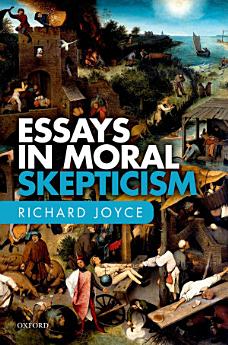Essays in Moral Skepticism
જાન્યુ 2016 · Oxford University Press
ઇ-પુસ્તક
288
પેજ
family_home
પાત્ર
info
reportરેટિંગ અને રિવ્યૂ ચકાસેલા નથી વધુ જાણો
આ ઇ-પુસ્તક વિશે
Moral skepticism is the denial that there is any such thing as moral knowledge. Some moral skeptics deny that moral judgments are beliefs; some allow that moral judgments are beliefs but claim that they are all untrue; others claim that all moral judgments are unjustified. Since the publication of The Myth of Morality in 2001, Richard Joyce has explored the terrain of moral skepticism and, perhaps more than any other living philosopher, has been willing to advocate versions of this radical view. Joyce's attitude toward morality is analogous to an atheist's attitude toward religion: he claims that in making moral judgments speakers attempt to state truths (e.g., that breaking promises is usually wrong) but that the world simply isn't furnished with the properties and relations necessary to render such judgments true. Moral thinking, he argues, probably emerged as a human adaptation, but one whose usefulness derived from its capacity to bolster social cohesion rather than its ability to track truths about the world. This forms the basis of Joyce's 'evolutionary debunking argument,' according to which evidence that a certain kind of judgment can be explained with no reference to its truth may reveal those judgments to lack warrant. Essays in Moral Skepticism gathers together a dozen of Joyce's most significant papers from the last decade, following the developments in his ideas, presenting responses to critics, and charting his exploration of the complex landscape of modern moral skepticism.
લેખક વિશે
Richard Joyce is Professor of Philosophy at the Victoria University of Wellington. He received his PhD from Princeton University in 1998, and since then has taught and researched at universities in England, Australia, and New Zealand. He is the author of The Myth of Morality (CUP, 2001) and The Evolution of Morality (MIT Press, 2006), as well as numerous articles and book chapters on metaethics and moral psychology.
આ ઇ-પુસ્તકને રેટિંગ આપો
તમે શું વિચારો છો અમને જણાવો.
માહિતી વાંચવી
સ્માર્ટફોન અને ટૅબ્લેટ
Android અને iPad/iPhone માટે Google Play Books ઍપ ઇન્સ્ટૉલ કરો. તે તમારા એકાઉન્ટ સાથે ઑટોમૅટિક રીતે સિંક થાય છે અને તમને જ્યાં પણ હો ત્યાં તમને ઑનલાઇન અથવા ઑફલાઇન વાંચવાની મંજૂરી આપે છે.
લૅપટૉપ અને કમ્પ્યુટર
Google Play પર ખરીદેલ ઑડિઓબુકને તમે તમારા કમ્પ્યુટરના વેબ બ્રાઉઝરનો ઉપયોગ કરીને સાંભળી શકો છો.
eReaders અને અન્ય ડિવાઇસ
Kobo ઇ-રીડર જેવા ઇ-ઇંક ડિવાઇસ પર વાંચવા માટે, તમારે ફાઇલને ડાઉનલોડ કરીને તમારા ડિવાઇસ પર ટ્રાન્સફર કરવાની જરૂર પડશે. સપોર્ટેડ ઇ-રીડર પર ફાઇલો ટ્રાન્સ્ફર કરવા માટે સહાયતા કેન્દ્રની વિગતવાર સૂચનાઓ અનુસરો.






